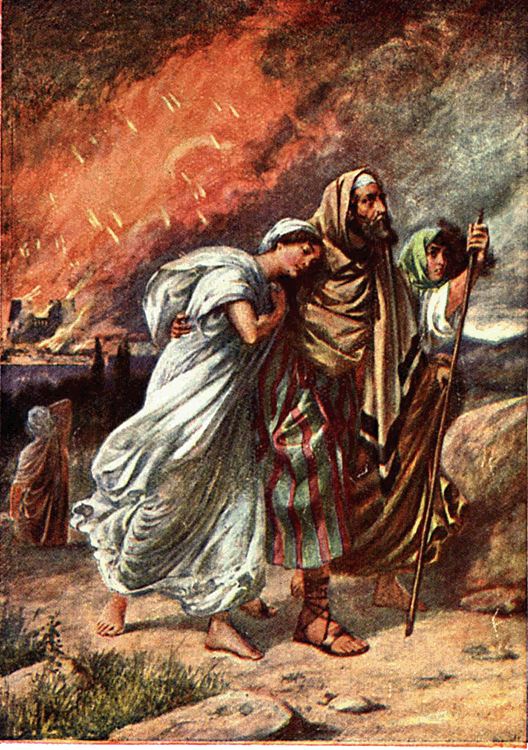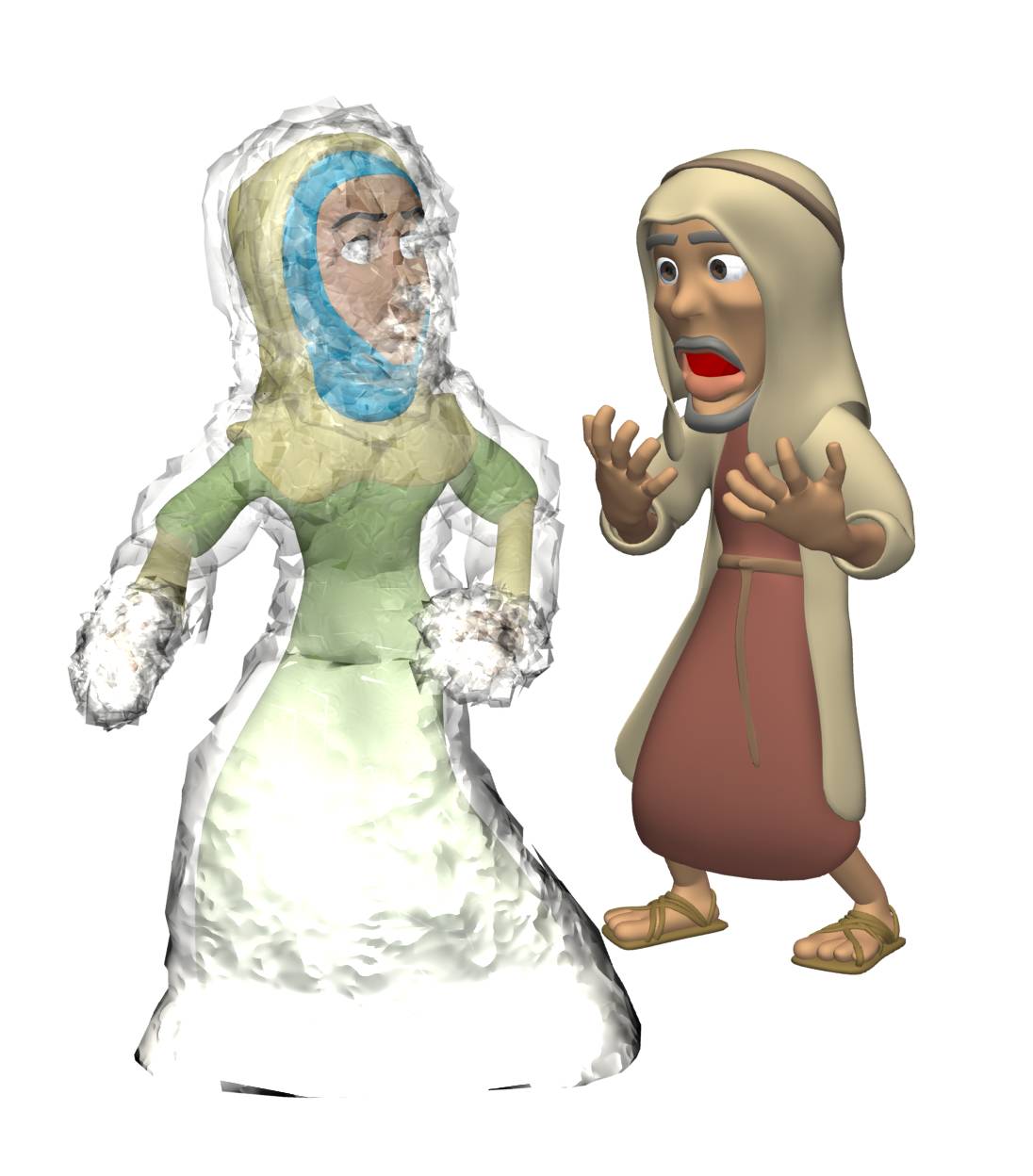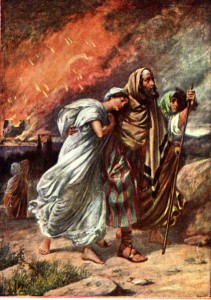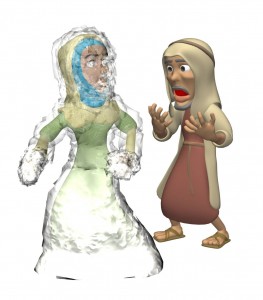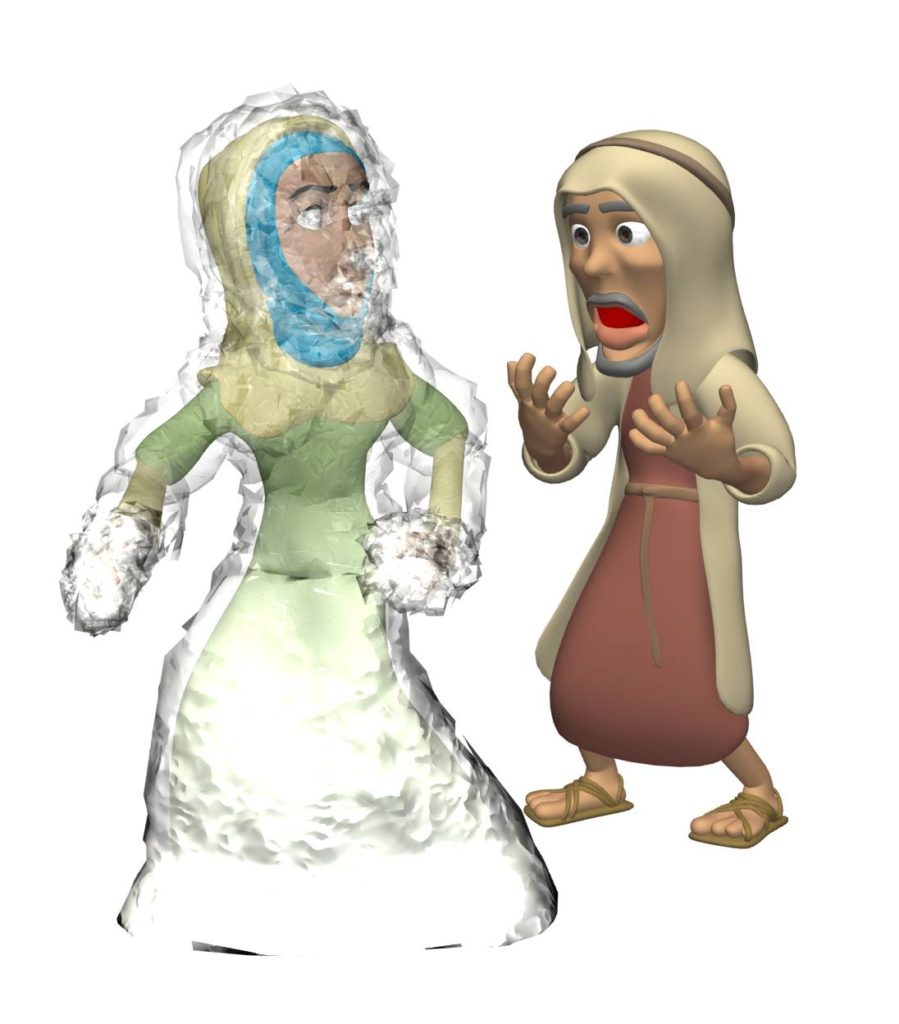
Almost every year, I post my commentary on Lot and his famous pillar-of-salt wife. Why? Is because I’ve run out of commentary articles to post? YHVH knows this isn’t the case. I have several thousand pages of commentary notes and articles that I have written on the Bible. There is no possible way I can publish this all on this blog! No. The reason I keep publishing this article each year is because the longer I live, the more I realize that I am a lot like Lot and his wife—and so are you if you’re honest. You see, both of these biblical characters are symbolic of the human condition including the struggles against the influences of the world, the flesh and the devil that we face daily. That’s why we need to be constantly reminded of this story, for in it, again if we’re honest, we will gain a better perspective on the true nature of our own spiritual condition, and in so doing, perhaps it will help us to be better overcomers. — Natan
Genesis 19:1ff, Lot sat in the gate of Sodom. In the end times, YHVH tells his saints to flee spiritual Babylon (Rev 18:4) in order to escape the plagues that will come upon her because of her sin. Lot was secure in wicked Sodom to the point that he had become a city leader (he sat in the gate of the city) and was now trying to appease his friends, the Sodomites, by giving them his virgin daughters for sexual exploitation. There is peril in complacent security. Lot barely escaped Sodom with his life from the fires of Elohim’s judgment. His wife did not make it. What can we learn from Sodom and could there ever come a time when we will have to flee the spiritual Sodom in which we find ourselves? Is it possible to flee our “Sodom” without physically leaving it?
Genesis 19:2, No.The lamed in lo (no) contains a small dagesh, which implies a harsh, rather than gentle, manner of speech. The angel was irritated and snapped harshly (not courteously), “No!” to Lot’s request for them to come to his home. Lot not being totally righteous did not merit such dignified visitors to come under his roof. But by their refusal and his persistence, he increased his merit and righteousness in Elohom’s eyes, such that was deemed to be a righteous man in the eyes of the apostolic writers (2 Pet 2:7).
Genesis 19:14, Sons-in-law. If Lot had three sons-in-law, then with the his married daughter and his two daughters and wife at home there would have been ten possible righteous people in Sodom, thus preventing divine judgment from falling on that wicked city as per Abraham’s request. The fact that Lot’s married daughters refused to leave Sodom with him possibly speaks to his failure in properly raising them in the fear of YHVH and his standards of righteousness. Lot had already set them a bad example of spiritual compromise and acquiescing to the world for personal and financial gain, and his children followed this example of spiritual compromise to the point where they had little or no faith in Elohim whatsoever. Though Scripture later calls Lot a righteous man, he was only righteous compared to the wicked inhabitants of Sodom, which may or may not be saying much.
Genesis 19:17, In the plain. Not only was the city destroyed, but the area around it as well. To this day, the entire area around where ancient Sodom was is barren, desolate and covered in gypsum (hydrated calcium sulfate) and sulfur balls. Verse 28 mentions “all the land of the plain” being destroyed as well.
Genesis 19:23, Then YHVH rained brimstone…from YHVH out of heaven. YHVH in heaven is the Father and YHVH on earth was the Son — the preincarnate Yeshua. At Yeshua’s second coming, he will bring judgment on the earth in accordance with the will of his Father in heaven.
Genesis 19:33, The word is to be understood as if the letter were not there. The dot over the vav in uvkumah (complete spelling for her getting up) as opposed to the vav missing in v. 35 (defective spelling of the same word) indicates that Lot was somewhat blameworthy the second night in that he knew that his drunkenness had led him down the wrong path and that he shouldn’t have allowed himself to drink wine the next day (Tikkun, p. 39).
“Remember Lot’s Wife!”—A Man Called Lot: What We Can Learn from His Life
In Luke 17 32, Yeshua warns end times believers to “Remember Lot’s wife.” What did he mean by this pointed warning? Is Lot not a picture of the typical Western saint whether Christian or Hebraic roots oriented saint? I believe so. In saying this, as a pastor and having been a watchman on the spiritual wall for many years, I see very little if any difference (broadly speaking) between Christians and most Torah-keepers, for the spiritual condition of both groups is fundamentally the same.
Continue reading

